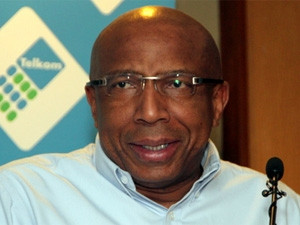
Ailing telecoms operator Telkom has indicated it is readying a quad-play move that it says will be "market transformative", within the next few months, but is holding its cards close to its chest for now.
The company, which is streamlining its business and driving cost-efficiencies across the board - as it tries to defend against dwindling fixed-line revenue and a largely underwhelming foray into the mobile space - is looking to integrated, or converged, services to open up new streams of revenue.
Speaking at a media dinner last night, Telkom CEO Sipho Maseko said the company is looking at various propositions to leverage its assets effectively. The converged services it plans to offer would include mobile and fixed voice, as well as Internet and data services (3G and LTE), and would include video streaming, and Telkom will seek content providers that would take up its soon-to-be-unveiled video-on-demand offering.
Telkom chief marketing officer Enzo Scarcella says the quad-play push would require the transformation of the company's wholesale business, with major changes needed both "culturally and commercially". The group is thus seeking to find the best ways to package propositions and partnership, and Scarcella hinted it may adopt a model similar to that of telcos such as BT or Verizon, saying this is "where all people in our position have gone".
Still standing
Looking back on the last financial year, Maseko says he would give Telkom a score of 8.5 out of 10 for the progress it had made, adding the company is clear about its objectives, has a good board in place and there is a good dynamic between the board and exco. The company's cost-efficiency programme has also yielded positive results and is set to continue, he says.
"It's a great start - it's like a boxing match, and we've just completed one round. We haven't been knocked out, and not that we have won the round, but we're still on our feet. The energy is coming back."
But Maseko warned Telkom will be faced with many challenges going forward, including strong competitors that have brand momentum, as well as a tough operating environment.
"The headwinds we'll be confronting are very strong. The economy is soft and disposable income is getting very tight. People will be making very serious choices about how they spend their money, and what they need to spend it on. So, we are competing with a lot of things."
Regulatory issues
Maseko also pointed out that further regulatory intervention is needed to address historical market distortions - and specifically pointed to termination rates and local loop unbundling.
In terms of the former, Maseko says the company is not satisfied with the current status of termination rates. "We still want parity between fixed termination rates and mobile termination rates, and we are engaging with ICASA [about this issue]."
Maseko also notes that singling out Telkom in the local loop unbundling process is unfair. "Let's have a full debate about the local loop, not just the Telkom local loop. Let's have a conversation about the DStv loop, and the mobile loop.
"All local loops must be in the mix, not just the Telkom local loop. There must be an equitable approach. We are pushing very hard for that."
He argued it is a misnomer that Telkom was give the network for free, when it actually paid for it, invested in it and maintained it, even replacing copper that goes missing due to theft. On average, in recent years, Telkom has spent R5.5 billion a year in capex on the local loop, as well as about R150 million a year to replace stolen copper.
Share